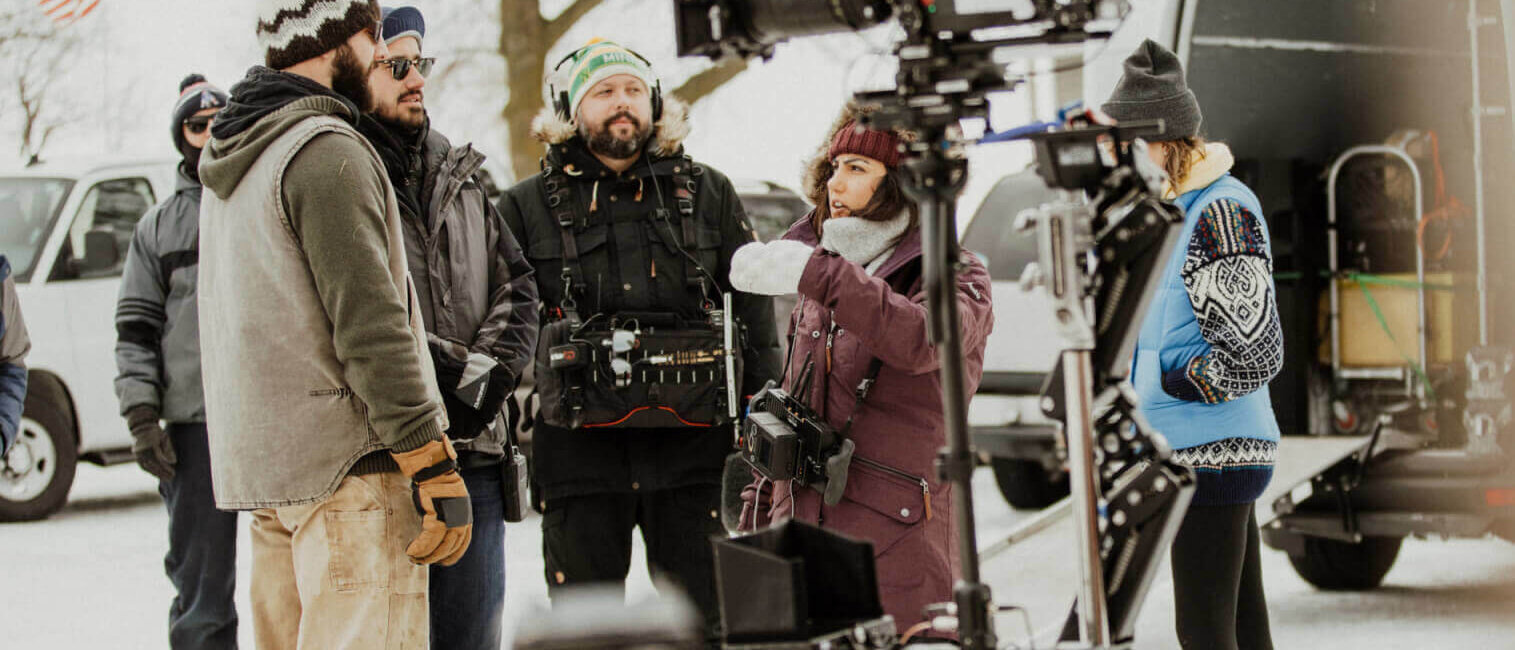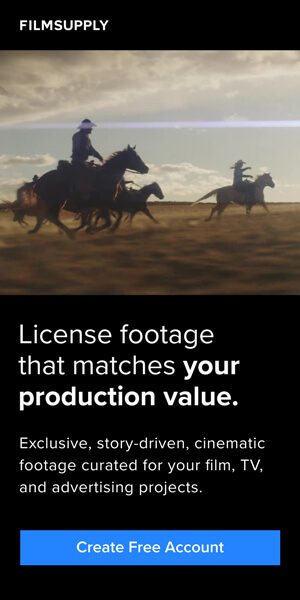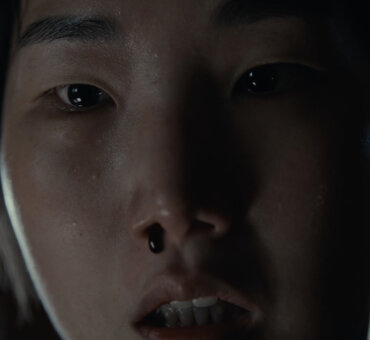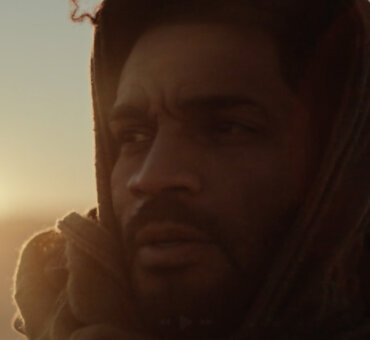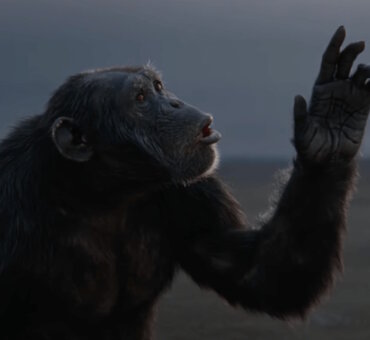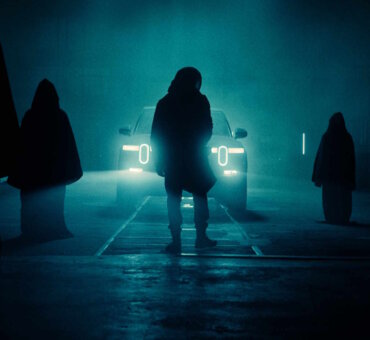For many filmmakers, commercial work and cinematic work do not mix. On one hand, you have a format where you have complete control over the final product. On the other hand, you have the opposite. But, during our conversation with Director Rayka Zehtabchi, she pointed out there might be a brighter future for filmmakers with a vision:
“It feels like we’re at the cusp of something,” Rayka told us. “As more brands realize there are different outlets for their films, I think they’ll be more apt to relinquish more of that control and trust the filmmakers.”
Rayka is an Oscar-winning filmmaker (be sure to check out her debut, Period. End of Sentence.) who’s learning to navigate the blurred lines between narrative documentaries and branded documentaries. Most recently, she wrapped production on KitchenAid’s A Woman’s Place, produced by the team at Ventureland, which explores the challenges women face in the culinary industry.
In our conversation, we explore how to push brands to be bold in their creative choices. Her experience with KitchenAid was entirely positive, and there are a lot of opportunities for filmmakers to proudly stand behind their branded work—even if it does have a suggestive montage. Here’s Rayka.
Filmsupply: Was your initial goal to direct documentaries?
Rayka Zehtabchi: I knew going into college that I wanted to go to film school, but I never anticipated directing documentaries. But the first thing that I was hired to direct, was Period. End of Sentence.
That’s quite the start.
Yeah, it was weeks out of college. I was driving for Uber, facing the reality that I was no longer a college student. I needed to pay back student loans. So the question was, “What does this look like as a day job? How am I going to support myself as an adult?” Period. End of Sentence. was not a money-making job by any means, but I really embraced documentary filmmaking throughout that journey and fell in love with it.
We were proud of that film because it feels like it’s entertaining, it’s elevated, it’s beautiful. It takes audiences on a journey. As opposed to being cut and dry, or like feeding people medicine. The other big factor was Sam Davis, who is my partner, was a co-producer on the film, the DP of the film, and the editor.
Together, we’re continuing to focus on making documentaries. We’re pushing more and more to elevate them and that was one of the big goals with the KitchenAid film A Woman’s Place. How can we continue to really elevate this film, not only aesthetically, but in terms of the storytelling? How can we take people on a journey?
Was this your first piece of branded content?
I’d done another one with Planned Parenthood right before it, but it was a much smaller project with a much quicker turnaround. It did give me a bit of a foundation to understand how you make branded short docs. They’re pretty complicated. In my mind, “branded” and “documentary” can sometimes clash. You’re trying to not have such a heavy hand as a filmmaker. You’re trying not to manipulate the outcome. You’re trying to empower, and really allow the subjects of this film to guide your story. That’s the documentary filmmaker in me.
But on the other hand, you’re being instructed to do certain things by the brand. You’re working on a really tight deadline, with very little time to actually edit the film. You don’t have a lot of time in post-production to discover your story or discover your film. On my film Period, for instance, we edited for four or five months and had time to discover the story that we had captured. With something like this, you’re getting a very limited amount of time in post-production. Going into the project, you know there are certain aspects you’re going to have to have a good grip on, even before you go to shoot.
How do you maintain that objectivity while still collaborating with a brand?
There was a lot of help from KitchenAid. A lot of the time, it starts with the brand itself or the ad agency that the client hires, to then hire the production company, to then hire the filmmaker. You have so many of these different moving pieces in the commercial industry. The director’s voice and vision are often one of the last things to be heard. Because of that, oftentimes that vision gets muddied.
But, we had a true collaboration with the KitchenAid film. The brand came to us saying, “We want to make a festival film. We want to make a film that hopefully one day lands on a distribution platform. We’re not trying to make a piece that just lives on our website and feels like it has an agenda. This is an issue we’ve identified, where women are having a very hard time in the culinary industry. So, what can we do?”
When you have a brand that’s not concerned at all about showing their product shots in the film—in fact, they wanted them to be almost invisible—you realize there’s a big opportunity here, to actually pay close attention to the subjects. Let them guide the story. And that’s what happened. Vox Media and Digitas were also very heavily involved in the project. Every time I would present something to them, or voice my opinion and have a really strong vision for the film, I was shocked because it received very little pushback.
So would your advice to other filmmakers be to just select your clients carefully?
Right. I think there’s a trend of brands taking a step back, especially in the branded content space. They’re aligning themselves with a cause and then bringing on creatives to tell the story. It’s moving in a better direction. But yes, it’s important to be more discerning. Do your homework beforehand. Have conversations with the brand. Understand how to identify what it is they’re seeking.
I haven’t been in the commercial world for a long time. I’m coming in as a bit of an outsider. My mentality is I want to work on the projects that I want to work on. I’m not going to just take a job for the sake of taking a job.
Because it’s not just a job. It’s something that I’m going to invest a lot of my time, my heart, and energy into, the way I would if I wasn’t working on a commercial project. And I’m starting to learn that it’s important for you to voice your opinion to the client.
In a way, being firm in your vision provides your client with a better product.
I’ve learned so much since I started commercials, even just a year ago. I was really afraid to speak up. I didn’t quite understand my place as the director or the filmmaker. I thought that you have to be a servant to the client, do everything they request. More and more, I’m realizing now that, A, those are not the type of clients I want to be working with, and B, I also have a responsibility to voice that opinion. To be really strong-headed. If I feel like something is the right choice, the right creative choice, and it’s about pushing the brand in the right direction, I need to be vocal about that. It’s why you were hired.
How do you get to a place where you feel comfortable doing that?
I think it was about the little victories along the way. You become more and more empowered when you have conversations with the client and it feels like they’re responding positively to your unconventional approach. Little by little they will come along. As you’re collaborating with someone new, they’re proving to you that they’re listening to you. They didn’t just woo you to take the job, and then flip on you in the middle of the process.
Sam and I had this really funny sequence he cut in the film when he was editing during lockdown orders in California. He showed me a cut of this phallic montage. We had recreations of these different male chefs holding cucumbers and all these different things. We were cracking up, but then I got serious and said, “There’s no way they’re ever going to be okay with this.” He said, “We should just do it. They’ve been really cool about everything else.”
And it was incredible. I think we sent probably five cuts over during the process and no one ever raised any questions. One person talked about how much they loved it. It’s an example of, even up until the very end, you still have a little bit of this anxiety as a filmmaker that they’re not going to be on board with the vision. But, that never happened.
Maybe test the waters before you go straight for the phallic montage, right?
Oh, 100% [laughs]. I would never ever do something like that right off the bat. But, the commercial industry moves so quickly. You’re working with new people constantly. New clients, new crews. You have to dive in with them very quickly. It can be tricky, and a little daunting.
Do you think branded content is a safer space for creative filmmakers these days?
I feel more empowered. A Woman’s Place was acquired by Hulu and historically that hasn’t happened many times, where a branded documentary has been acquired by a major streaming platform. That came as a surprise to us. It feels like we’re at the cusp of something. As more brands realize there are different outlets for their films, I think they’ll be more apt to relinquish more of that control and trust the filmmakers.
And all of sudden, you don’t have to sacrifice your vision to make commercial work.
Absolutely. That’s the goal for both Sam and me as filmmakers. It doesn’t matter what the format is, or what the medium is, storytelling is storytelling at the end of the day. There’s always going to be a push to blur the lines a little bit, to ensure your work is going to feel elevated. It’s going to feel premium. It’s going to be entertaining and cinematic. Whether it’s a narrative short film, a feature film, or a 30-second commercial for a brand, we’ll always strive to elevate our work. They’re all very different, but they still have the same heartbeat.To discover more story-driven ad work, read about “5 Ads That Speak to Product Without Showcasing It”.
